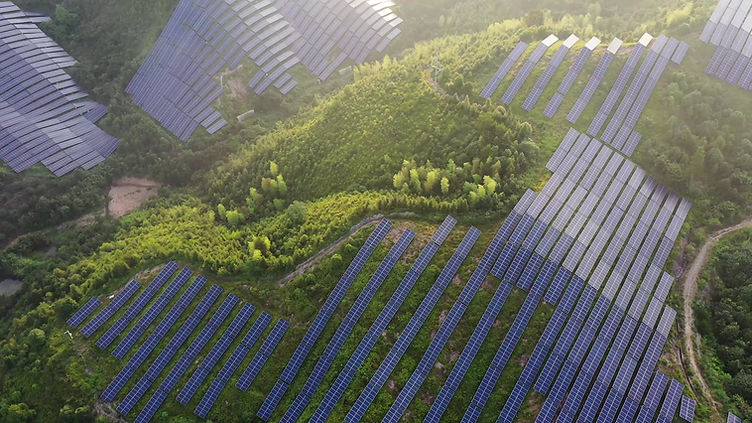
The Shifting Sands of Global Climate Governance: Can the Global South Take the Lead?
The international landscape has witnessed profound geopolitical shifts in recent years, perhaps none more striking than the waning influence of Western nations in global climate governance. While the United States has adopted a more aggressive and isolationist stance, particularly during the Trump administration, the European Union has become increasingly fragmented, timid, and focused on its internal affairs. This power vacuum presents a unique opportunity for the Global South, encompassing nations like Brazil, South Africa, India, and China, to step forward and assume a leadership role in addressing the climate crisis.
Historical Context: Poverty and Environmental Responsibility
The challenge of balancing sustainable development with environmental responsibility is not new to the Global South. As far back as 1972, at the United Nations' first major environmental conference in Stockholm, India's then-Prime Minister Indira Gandhi poignantly stated, "Poverty is the worst form of pollution." This sentiment reflects the long-standing concern among developing countries that stringent climate policies could exacerbate existing inequalities and impede their economic growth.
Unfulfilled Promises and Eroding Trust
Despite numerous global commitments to combat climate change, including those made at the 1992 Rio Earth Summit and the 2015 Paris Agreement, progress has been disappointingly slow. Furthermore, financial support from developed nations has consistently fallen short of what is required to facilitate climate action in developing countries. This shortfall has not only hindered progress but also eroded trust in Western leadership and diminished global ambitions for a sustainable future.
The Power of Narrative and the Rise of the Global South
For decades, the West has dominated the climate narrative, largely due to its control over key institutions and resources. This includes the scientific expertise that informs the UN Intergovernmental Panel on Climate Change, the multilateral development banks that provide climate financing, and the global media outlets that shape public opinion. However, the recent decline in Western leadership provides an opening for the Global South to reshape this narrative and ensure that its priorities are reflected in the international agenda.
A Fractured West and the Opportunity for Equitable Transition
The resurgence of nationalist sentiment and inward-looking policies in the West has shattered the notion of a unified front on climate action. However, this fragmentation could empower the Global South, which disproportionately bears the brunt of climate change impacts, to spearhead a more equitable and inclusive transition to clean energy. Reducing dependence on fossil fuels, which is becoming increasingly viable with the advancements in renewable energy technologies, can also help stabilize economies and improve public health in the long run.
China's Green Tech Leadership
Several Global South governments have already played pivotal roles in shaping the Sustainable Development Goals and the Paris Agreement. Notably, China has emerged as a global leader in green technology, surpassing the West in the transition to renewable energy sources. Facing trade barriers from the US, China's surplus of solar panels, batteries, and wind turbines could be redirected to developing countries, thereby strengthening their energy independence.
Building a Cohesive Climate Agenda: The Role of BRICS+
There are indications that Brazil, India, South Africa, and China are collaborating to forge a cohesive climate agenda in preparation for the UN Climate Change Conference (COP30) in Belém, Brazil. This conference will focus on collective action, or "mutirão." In April, the President of Brazil and the UN Secretary-General convened a summit bringing together heads of state from the Global South and the EU to elevate climate ambitions leading up to COP30.
Brazil, leveraging its BRICS+ presidency, has also created a roadmap for expanding cooperation on energy security and establishing the BRICS Laboratory for Trade, Climate Change, and Sustainable Development. A Leaders’ Framework Declaration on Climate Finance was approved during the BRICS+ Summit. The extent to which these initiatives will yield tangible results remains to be seen, given the diverse interests of BRICS+ countries, some of which are heavily reliant on fossil fuels.
Amplifying African Voices: South Africa's G20 Presidency
South Africa is using its G20 presidency to amplify the voices of African nations and advocate for debt relief, green industrialization, and affordable financing. This approach aims to address the structural barriers that prevent vulnerable countries from investing in climate mitigation and adaptation measures. With adequate financial and technological support, the green transition can drive widespread prosperity in the developing world.
Plunging Costs of Clean Tech and De-dollarization Efforts
The dramatic reduction in the costs of clean technology, largely driven by China's industrial capacity, has created more favorable conditions for climate leadership in the Global South. Furthermore, China could finance decarbonization projects in other countries through renminbi loans, export credits, and debt-for-clean-energy swaps. If successful, BRICS+ members' efforts to reduce reliance on the US dollar could alleviate financial constraints and decrease dependence on Western banks.
South-South Cooperation and Plurilateral Initiatives
In a world characterized by fragmentation, multilateralism remains crucial. South-South cooperation on agreed climate targets offers a powerful platform to revitalize multilateral efforts. The Global South is also well-positioned to lead plurilateral initiatives that advance climate solutions. These coalitions of the willing are essential for counteracting protectionist tactics, such as the use of trade negotiations to influence investment priorities and weaken green policies.
COP30: A Crucial Opportunity
While Western countries must be held accountable at COP30 for their historical emissions and unmet climate finance commitments, the summit presents a vital opportunity for the Global South to demonstrate that climate and development goals are not mutually exclusive. To capitalize on this opportunity, leaders of these countries must prioritize their shared interest in presenting a clear and compelling vision of an energy transition that uplifts their people and safeguards the planet.


No comments:
Post a Comment